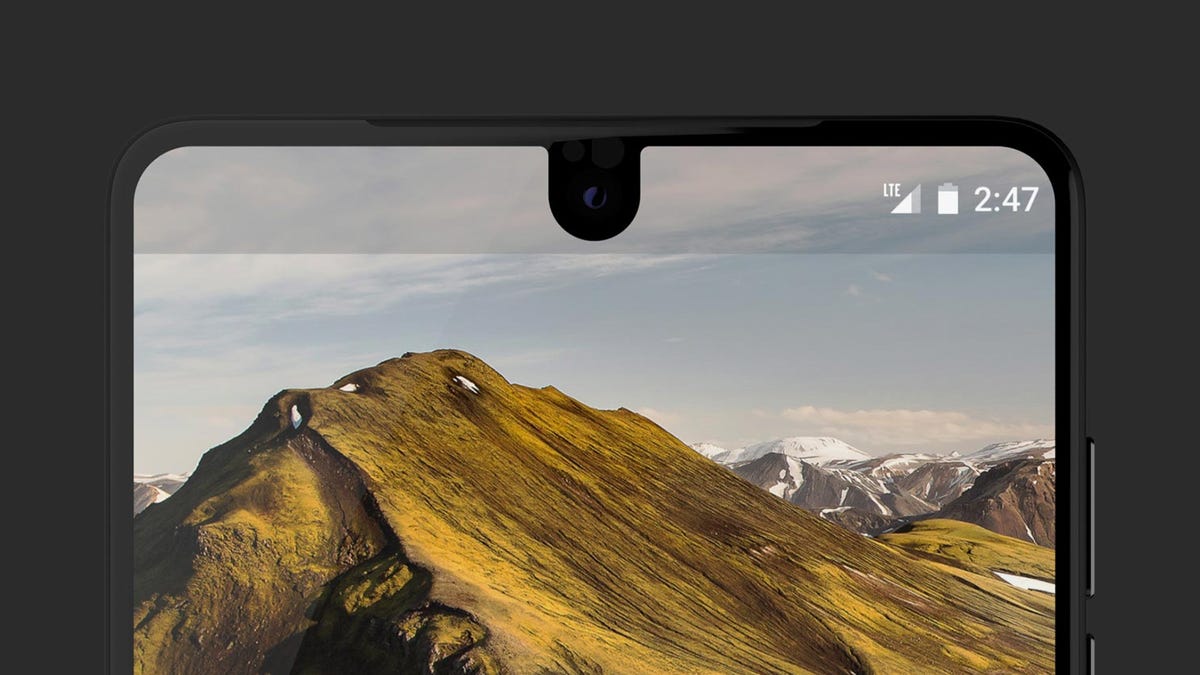Essential: We can unleash Android's power better than Google
The company lays out its grand vision of accessories that will help its Essential Phone improve over time.

Essential is starting with some pretty bold claims.
Considering Google has been the steward of the Android for the past nine years, you'd assume that there's no one better able to fully utilize the operating system.
At least according to Essential Products, you'd be wrong.
The Essential Phone "can unleash the full power of Android," Essential President and Chief Operating Officer Niccolo de Masi boasted in an interview on Tuesday night, "doing it justice" with more advanced hardware. Yes, he's saying that knowing full well that Google and other hardware companies are already working to make the optimal mobile experience.
You can make a bold statement like that when your boss is Andy Rubin, the "father of Android."
Essential is Rubin's attempt to shake up and "fix" the mobile world by simplifying things and (hopefully) bridging multiple ecosystems together. Essential Phone is a premium handset that emerges at a time when people looking for the latest and greatest typically go to Apple or Samsung (or, increasingly, Google itself). It's also an attempt to build a larger consumer electronics company with brand loyalty: Essential wants to start with phones, and grow to a lot of other things, too.
Part of that unleashing includes Essential's plans to offer product that gets better over time through a growing family of accessories. The first accessory, for instance, is a 360 camera attachment. Think Motorola's Mods for its Moto Z phone, which include battery packs and projectors. De Masi, however, prefers the term "meaningful accessories."
He teased that that the accessories will theoretically work on the Essential Home, a hub with a digital assistant similar to an Amazon Echo. He also said to expect more accessories every quarter or so that are able to take advantage of the phone's proprietary accessory port.
There are several billion-dollar tech giants working in their own walled garden, de Masi said. Google, Amazon, Apple and Microsoft are all companies working on their own systems, which happen to not play nice with each other.
The "next $100 billion dollar idea" is connecting the other walled gardens, he said. That's particularly the case in the smart house, noting there's "a lot of confusion in the home right now."
He wants Siri, Google Assistant and Alexa to work well with Essential's Ambient OS, but recognizes "not everyone will want to roll with us." Essential Home, which will run the Ambient OS, still doesn't have a price or release date.
Here's what else I learned from speaking with de Masi.
Essential Phone is just the start
The priority now is phones, but Essential has a clear plan that stretches as far as three years, de Masi said. Right now, it's about selling more phones and building up scale to drive an ecosystem of products.
"The more phones we sell, the more attractive we become for third party developers," he said. "A virtuous circle. We want to get a flywheel going."
Wearables next?
De Masi hinted that wearable devices could be in play. A wearable band could, for instance, work with Essential Phone. Technically, Essential's accessories work at close range to share data wirelessly while connecting to the phone to draw power, but de Masi says "you could do an accessory where you could charge and transfer data via the phone," suggesting a wearable-type device that could be clipped on and off temporarily.
Maybe that hints at where Essential's going next: think "fitness, medical, optical."
360 video is the future
"It's the winning format of the next five years," de Masi said of 360-degree video, which he believes will ultimately supersede VR because it can be viewed on a phone or a headset. He wouldn't confirm any plans for a VR headset.
What about cars?
"No comment."
Google wasn't immediately available to respond to Essential's comments.

